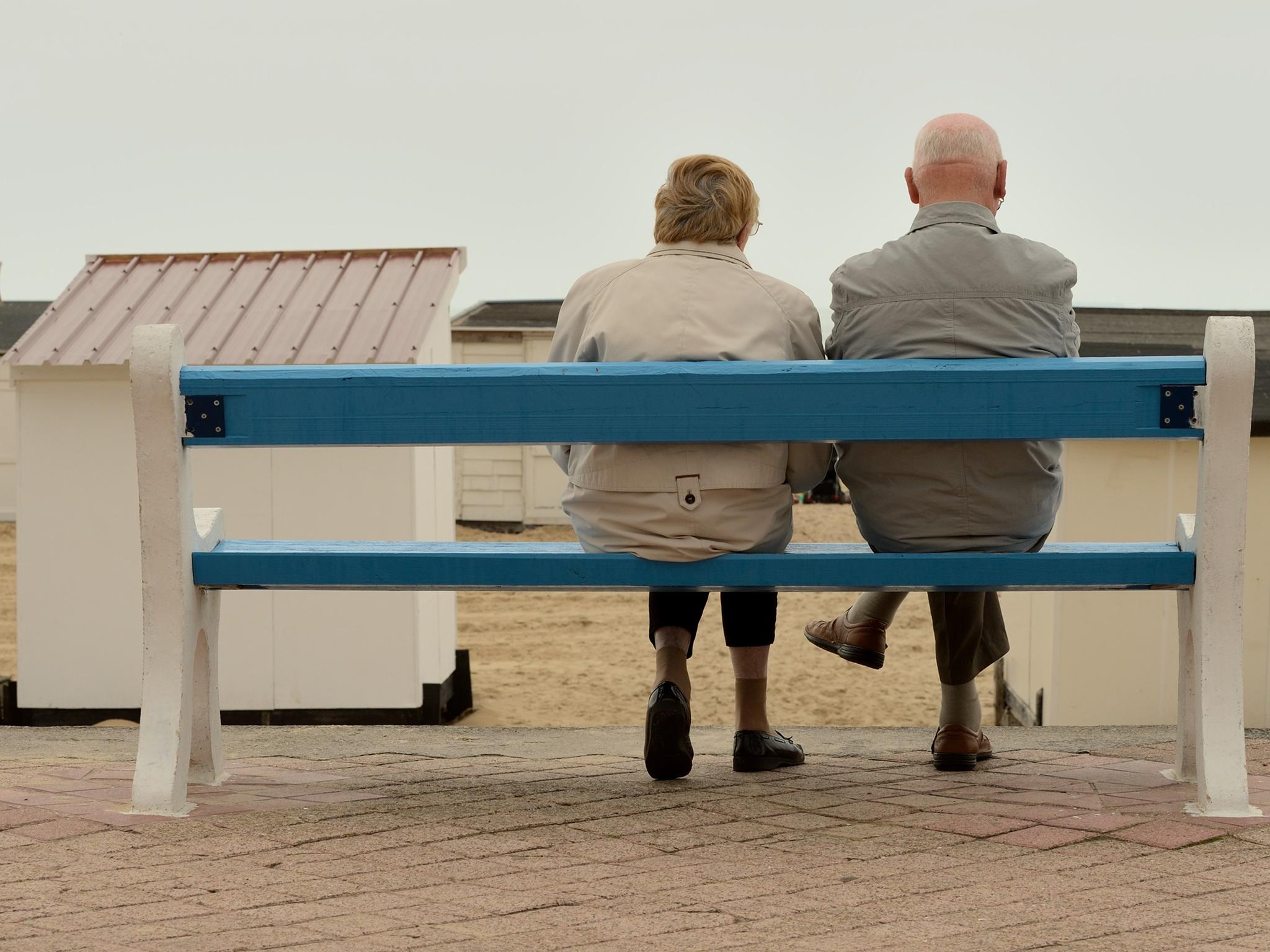No savings for a care home future? That's your problem
Britons should take responsibility for their own pension and social care, says research

Some days, with the wind in the right direction, you can almost hear the longevity clock ticking. It’s a distant resonating boom – the sound of waves hitting the shores of financial frailty.
We know our ageing population is becoming a problem – a big one. We know the money is set to run out before we do. But right now there are other issues to worry about, like grappling with the rising cost of living, stagnant wages and what on earth January’s credit card bill will look like.
With precious little spare cash, few of us can afford to square up to the problem of just how we will fund a longer life. Add in the chances of ill health as our age increases and up come the emotional barriers too.
At best, we hope and assume the government will have a safety net robust enough to catch us. New research from think tank Demos has found one in four Brits believe social care is free. Just 5 per cent of the over-40s are financially prepared for covering possible care costs in later life.
Postcode lottery
Meanwhile, the latest troubling picture of state funded social care has also emerged this week thanks to a well-aimed freedom of information (FOI) request.
Data from more than 125 English local authorities shows a huge variation, not only in the amount councils are willing to pay towards care home costs, but the extent to which people have to haggle with their local authority to get a good deal.
Where elderly people enter care in a “crisis” situation and do not have family members to advocate on their behalf, this process of negotiating care fee packages could leave the vulnerable elderly losing out according to Royal London.
In Luton, for example, the maximum the local authority will contribute to care home funding is £735 a week. In Blackpool it’s £476. These are two of the authorities that won’t budge on contributions, regardless of actual care costs.
Then there are those who regularly exceed their own limits, such as Oxfordshire, which has a stated rate of £493 per week for residential care but breaches this in 94 per cent of cases. The local authority in Poole exceeds its £490 a week limit in 84 per cent of cases.
Others, such as Buckinghamshire, Cornwall and Croydon allocate funding on a case-by-case basis.
“We have uncovered a disturbing patchwork of support for people needing residential care, which varies hugely depending on where you live,” says Steve Webb, Director of Policy at Royal London, which submitted the requests.
“The most worrying variation is the extent to which residents are expected to haggle with the council in some parts of the country."
Disturbing patchwork
Whilst responding to individual needs and circumstances sounds like a good thing, it is very likely that older people who have vocal family members to support them will be able to strike a better deal. Local authorities must be very careful to ensure that they do not take advantage of the poor bargaining power of vulnerable elderly people, leading them to accept the cheapest care provision rather than the most suitable”.
The figures are disturbing but not exactly surprising. The dire, inconsistent state of our long-term financial planning – both individual and at state level – has been seriously concerning economists and policymakers for some time.
But now the tide of public opinion, (and, just maybe, attitudes to financial prioritising) may be changing.
The Demos study found that almost 60% believe individuals have greater responsibility that the state to meet the costs of care in retirement. Only a third of the public believes the Government should foot the bill.
In fact, while we would back tax increases to plug the care gap and either a capped or meats tested support to help the poorest, the majority of Brits are against a wholly tax-funded care system that is free at the point of use.
Deluded
Demos found that the majority of people believe they will either ‘save-up’ or ‘down-size’ to a smaller property to cover the general costs of retirement and any care they might have to pay for. However, with average care home costs currently coming in at around £30,000 a year, saving 5 per cent – or even 10 per cent – of the average salary is nowhere near enough to cover the costs.
The think tank argues the only viable alternative is to use insurance and/or equity release products to enable modest savings to cover the costs of care, and to enable people to use housing equity without having to move.
But, it says, poor awareness and reluctance to engage with financial services needs to be tackled if the Government hopes to help people realistically prepare for future care costs.
Commenting on the report’s findings, the author, Demos Director Claudia Wood said: “It is interesting that while the public are more open to the prospect of having to take responsibility for retirement and care costs in later life, few still are making any effort to prepare financially.
"The government cannot allow the public to remain poorly informed and complacent about their need for care when they get older, how much it will cost, and how much they will need to pay.
“Developing an awareness raising strategy – including around the financial products people will inevitably have to use to pay for care in later life – is just as important as deciding on a new care funding model itself. Without the former the latter will be doomed to fail.”
Join our commenting forum
Join thought-provoking conversations, follow other Independent readers and see their replies
Comments
Bookmark popover
Removed from bookmarks